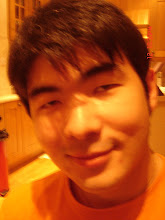
The Red Ring of Death has finally struck my Xbox 360, putting it out of commission for the last time. It's had a good run, seeing as I bought it over three years ago when it first came out, and since then it's given me many a 10-hour session of good times. After keeping it in overheating conditions with dust in the air for far too long, it started fucking up with increasing alacrity. For the last six months of its life, we all pretty much knew it was fading. We had to keep the windows open and artificially keep the room cold for the console to work. It was sad when the Red Ring of Death finally showed up, indicating catastrophic hardware failure, but in a way, it was time to move on.
To a new Xbox! I went through all my old games and cleansed the ones that I could sell and part with. I ended up getting over £70 for my efforts, £28 of which came from Santez's Guitar Hero
controller. Santez, if you're one of my two readers, know that your sacrifice was not in vain. (and I will definitely, definitely get you another controller if you come back from New York and need to play Guitar Hero.) This means that I ended up paying only £60 for a brand new console! Fantastic, I'm sure you'll agree.

In other, equally significant news, The Election is happening tonight. For 21 months it has pretty much hijac-
ked the second-tier spot in the news which stories about 10-50 non-nationals dying usually occupies. In recent times it has completely overwhelmed all newspapers with vast swathes of red, white and blue, and it's fair to say that in the rest of the
world, it is Obama's rhetoric of Change, Hope, and most importantly,
Pie which has captured the people's imagination far more than McCain's increasingly simpering petulance and Palin's
out-of-this-world psycho-mom folksiness. Americans are making an important decision tonight with their ballots. None of the rest of us can vote, but that doesn't mean that we are condemned to be passive spectators of the process. The world's will is firmly behind Obama, and this has resonated strongly in America.
Being the Most Hated Country On The Planet is not a badge of honour for most Americans, and knowing that 200 000 people turned out to watch
Obama speak in Berlin truly affects them.
I will be watching the election coverage tonight with a hand-picked retinue of intrepid friends, and we will be equipped with
celebration alchohol and
commiseration alchohol. All are invited to attend. Whoever
wins the election tonight, Politic Blunder will be featuring its second Special on the new president. Tune in or be left with the paltry exclusives and shallow analysis of all the other syndicated broadsheets around.














